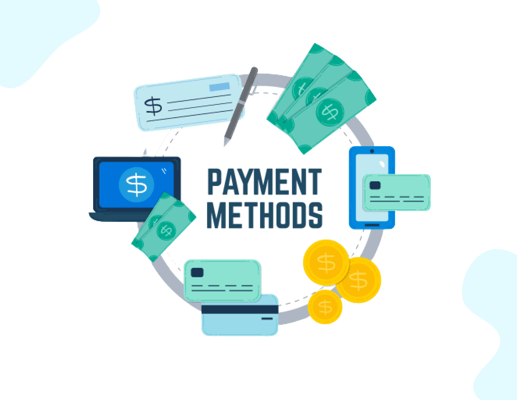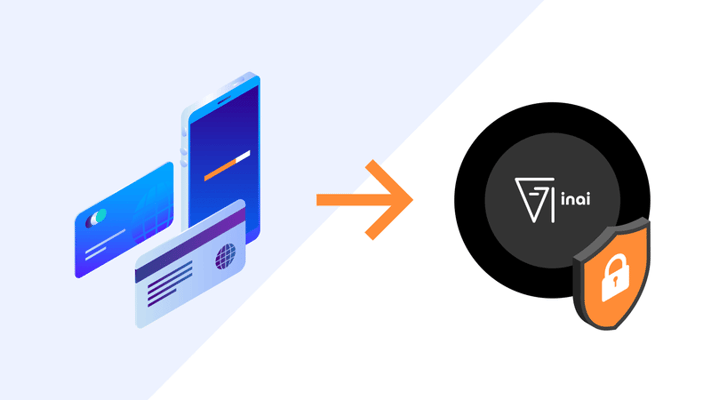For merchants to reach their full potential and provide a fluid customer experience, it is crucial that they integrate not only multiple payment service providers (PSPs) – but also select intelligent transaction routing. Doing so ensures the flow of payments runs smoothly across all PSPs within their business.
Payment routing is an essential process for every business that deals with multiple PSPs. It allows you to route or send every transaction to the most viable payment gateway. This way, you can achieve a higher transaction success rate, reduce transaction costs and boost customer experience.
In this blog, we uncover the wealth of advantages that come with payment routing. Let us show you how integrating a smart system into your business can help optimize payments and open up exciting new possibilities for efficiency!
Growth of Payment Routing
Traditionally, merchants used to route payments through a single PSP which had several drawbacks such as:
-
High Transaction Failure Rates
-
High Transaction Expenses
-
Poor Customer Experience
However, with the development of technology, eCommerce, changing customer preferences, and globalization, multiple PSPs and smart payment routing have come into the picture. Smart payment routing fixed all of the above issues by allowing merchants to seamlessly route transactions to whichever payment gateway they find the best based on different factors such as:
-
Transaction Success Rate
-
Country
-
Payment Method
-
Transaction charges
-
Card Brand
-
And more
When transactions are routed through the best available options, the transaction costs decline, and the success rate &n customer experience improves.
Also read : 10 Ways to Improve Your Checkout Conversion Rates in Southeast Asia
Types of Payment Routing
There are three common payment routing types that merchants can opt for:
1. Rules-Based Routing
Rule-based routing allows you to set certain rules according to which the payments will be routed. For instance, you can send the transactions across different payment service providers based on their country, card type, payment method, etc. And, if a customer chooses a specific payment method, country, etc., they'll be redirected to the payment gateway set by you.
2. Intelligent Routing
Intelligent routing is basically a smart, automated solution. It tracks and monitors all the payment failures and other aspects across the entire payment ecosystem and makes automated routing decisions while considering the following factors:
-
Processing rates
-
Downtimes across payment methods / PGs
-
Approval rates
-
Authorization rates
-
Transaction charges
3. Custom API Routing
API-based routing is the most advanced type wherein you can get:
-
Live Outage Monitoring: This feature sends alerts via email or CMS and notifies you if the failure rates surpass the given threshold. So, you can always take the appropriate measures.
-
Fallback/Cascading Mechanism: Using this feature, you can automatically route failed transactions through a backup PSP, ensuring seamless payments no matter what.
-
3rd Party Risk Scoring: Using this feature, you can connect to different risk scoring csystems to prevent fraud and add protection.
3 Advantages of Payment Routing
By integrating a smart payment routing system, merchants can experience the following advantages:
1. Improved Transaction Success rates

Without an efficient payment routing system, businesses are missing out on opportunities to optimize their payments and take advantage of the best provider for each transaction. They end up routing the payment to a payment gateway with a poor authorization rate, leading to transaction failure and, thus, customer churn.
However, with a dynamic payment routing system in place, merchants can route transactions to the payment gateway with the best success rate. This way, merchants can substantially reduce payment declines and improve sales.
2. Reduced Costs of Transaction

Running your business with only one payment service provider can severely limit efficiency and cost-effectiveness. To boost both, it's best to utilize multiple providers that offer smart routing capabilities, so you can choose the option offering the lowest transaction charges for each purchase - resulting in more significant savings over time while still sustaining high success rates.
3. Ensure Seamless Payments and Good Customer Experience

It's not uncommon for payment gateways to experience malfunctions or downtime. And this can disrupt the payment flow leading to failed transactions and, thus, poor customer experience.
However, you can deal with this using a smart payment routing system with cascading. Such a solution automatically reroutes the transaction to a feasible/working payment gateway in case the default one cannot process the payments. This way, you can ensure seamless payments, regardless of any roadblock, and improve your customer experience.
How Routing Works?
You can route your transactions in two ways: Rule-based routing and Intelligent routing.
1. Rules-Based Routing
Static payment routing is when a merchant creates a route for every transaction. This is a fixed route and is unresponsive to any dynamic contingencies. For instance, if a payment service provider fails to process a transaction due to a malfunction, you can do nothing. The payment will not go through, leading to a poor customer experience.
2. Intelligent Routing
Dynamic payment routing, on the other hand, adapts to any changes as and when they occur dynamically.
Let's say you have a dynamic payment routing system in place and your default payment service provider fails to process the transaction. Now, you can program your dynamic payment routing system to automatically route the payment through the best available alternative based on multiple parameters such as geolocation, authorization mode, card brand, type, etc.
Dynamic payment routing basically deals with any unexpected contingency and ensures seamless payments without letting the customer suffer.
How Can inai Help?
inai is a payment aggregator solution that comes with an intelligent payment routing engine. Using our routing engine, you can optimize all incoming & outgoing transactions and route them through the best payment gateway available.
With inai, take your payments global with quick integration of 300+ payment methods & 30+ gateways. Our no-code dashboard lets you easily set up custom routing parameters, such as card brands or success rates, to route transactions across countries!
All in all, inai allows you to set up a dynamic routing system to effectively improve the transaction success rate, reduce transaction costs and maximize customer experience. To know more about how inai can help, book a demo now!
.png?width=123&height=71&name=inai%20logo%20-%20dark%201(1).png)

.png?width=861&height=229&name=CTA%20(1).png)
.png?width=150&name=karthik%20(1).png)

.png?width=50&name=karthik%20(1).png)

